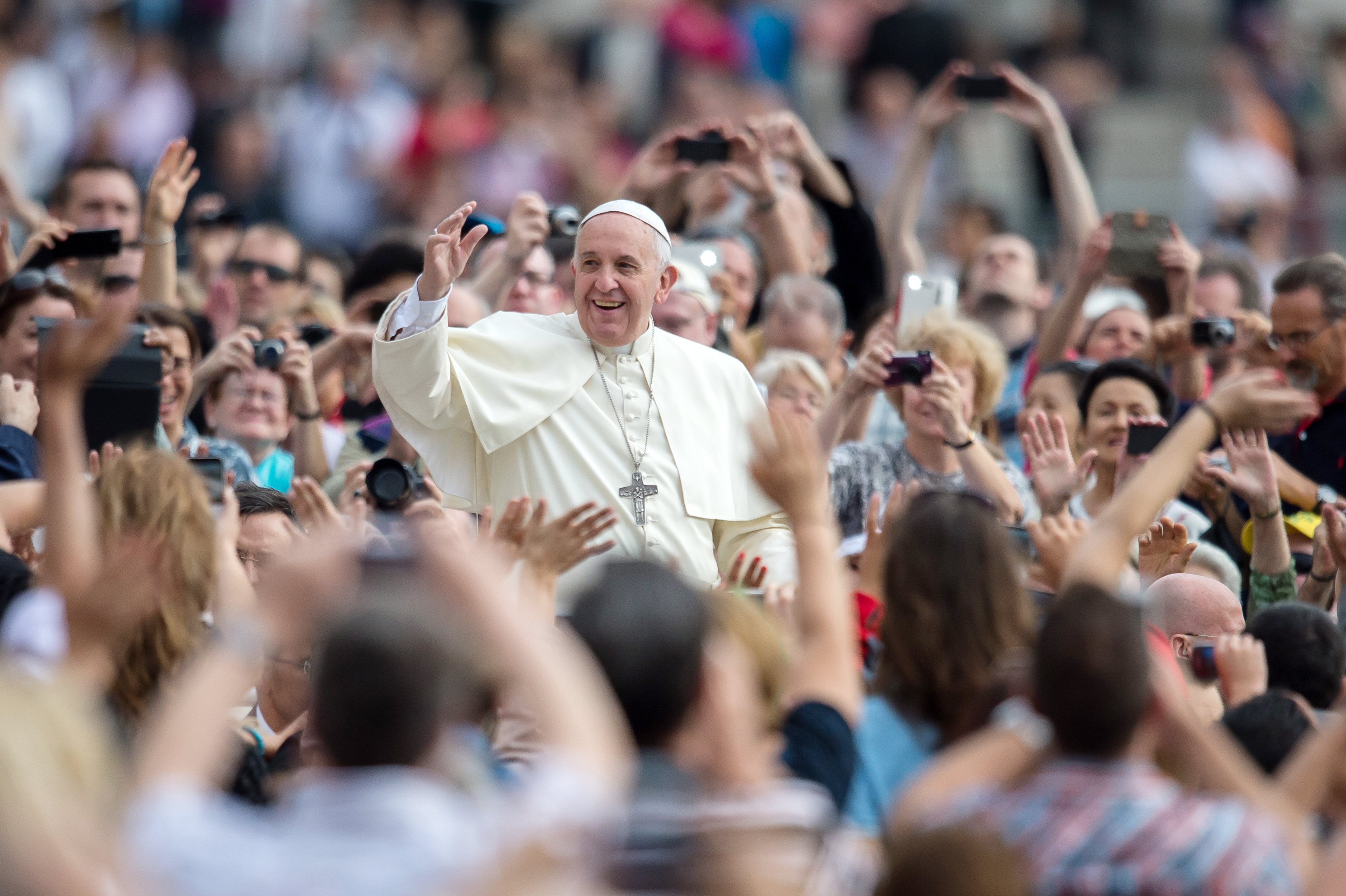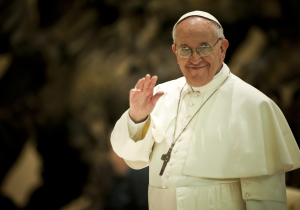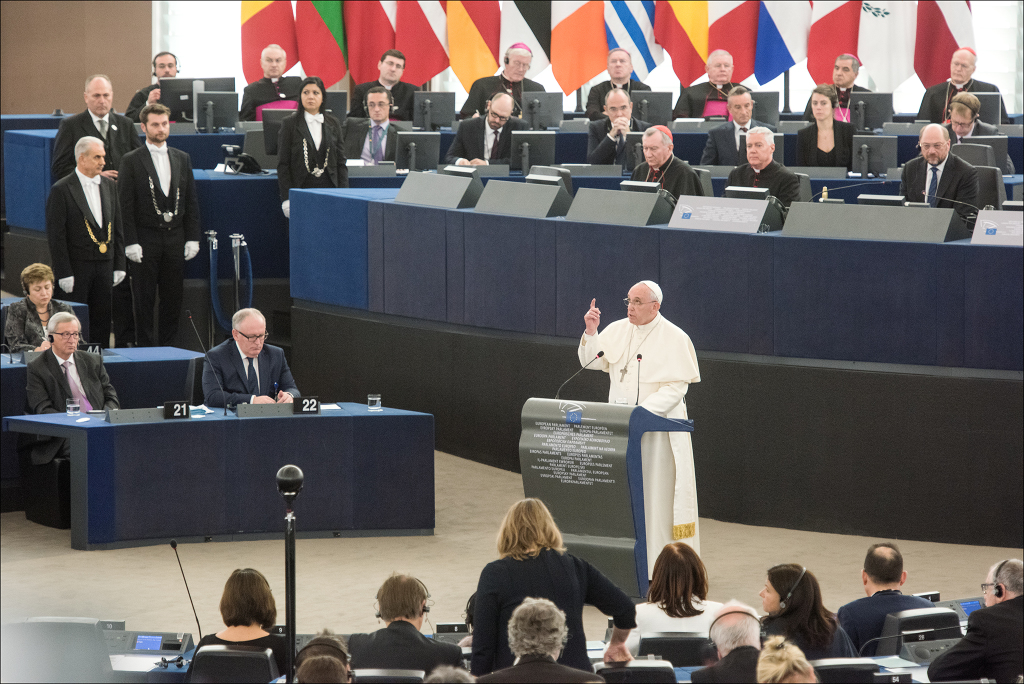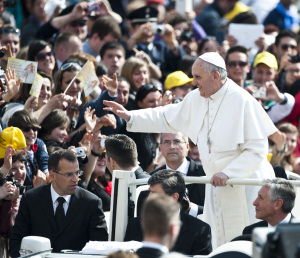The Pope Francis Phenomenon


Argentinian Jorge Mario Bergoglio, Pope Francis, bore many firsts for the Vatican: he is the first elected pope while the previous pope (Benedict XVI, by resignation) remains alive; first pope of the Americas; first Jesuit pope; and first pope actively using his Twitter account (opened by predecessor). A pope in touch with social media seems unusual at first, but this proves to be a great skill for Pope Francis during his visits. From his humble upbringing and early career in the Clergy, Pope Francis already presented himself as intrinsically different, in personality and values, from his forerunners on the papal seat.
Since his election on March 13 2013, preaching a life of sobriety and simplicity among his followers and the Clergy, Pope Francis has taken the world by storm, statement after statement. Among his most striking opinions, his famous “Who am I to judge?”, concerning homosexual members of the Clergy, made waves in the media, especially due to the nonchalance with which he brushed away decades of anti-homosexual comments by the Church. However, he still sides with the Church on the issue of same-sex marriage, even after affirming that homosexuals should not be marginalized from the rest of society. The statement nevertheless succeeded in inspiring values of tolerance and acceptance within the Christian community. Furthermore, Pope Francis has expressed views true to the Church on subjects such as abortion and contraception, hopes of furthering inter-religion talks and plans to bring together branches of the Catholic faith. Is this a contradictory doctrine or is he simply choosing his battles? One must simply wait and see.
Moreover, Pope Francis, far from stopping at religious matters, dabbles in economic and political issues. Last month, he spoke at the European Parliament, sparking debates on his statement that there must be “a return to the conviction of the founders of the European Union”. He sent a plea for a better Europe, stating that the population was discontent with indifferent institutions, unwilling to reform or renew, and that caused the Union to become “a grandmother … no longer fertile and vibrant”. Many stated that Pope Francis’ criticisms were undermining the European Union and generating even more distrust in its establishments, thus fueling separatist political parties in individual countries. However, the pope’s harshness tends to be more of a wake-up call for Europe, effectively bringing more attention on its fundamental flaws and bringing hope of a revival.

Next up in the papal visits was Turkey. On top of the seemingly routine appeals to stop ISIS attacks, immediately cease the persecution of minority groups in Syria and Iran, and furthering talks with prominent religious figures of Islam, a very important topic was on his agenda, never forgetting his lead papal project: talks of the unification of the Catholic and Orthodox Churches, split since 1054 due to heated differences on papal responsibilities. The unification of these two branches has been a priority in the reforms of the pope since his election, and he has affirmed to the Orthodox Christians that the union would not “signify the submission of one to the other, or assimilation.” Advocating a liberalized, tolerant Church immensely clashes with the values of the Orthodox, and, once again, shows a contradiction in Pope Francis’ doctrine. However, the talks in Turkey ended with the image of the pope embracing the Orthodox Church leader Bartholomew, broadcasting a strong sentiment of Christian unity.
Another giant step for the Catholic Church was the affirmation of the end of modern-day slavery by 2020. Among Pope Francis’ activism priorities is the fight against exclusion of members of society, notably in contemporary forms of slavery such as forced labor or prostitution. On Tuesday December 2nd, the pope was joined by Jewish, Buddhist, Muslim and Christian religious leaders in a signing ceremony to condemn modern-day slavery, declaring its end in 2020. Using public awareness and stricter anti-slavery legislation by local governments, the abolition could be a strong possibility. Pope Francis will play an active part in the advocacy of the cause in the future, making it a top priority on his agenda during his papal visits. [6] The media’s extensive coverage of his whereabouts, grasping at every word for some astonishing proclamation to juxtapose against the values of the Catholic Church or his papal precursors, maximizes the publicity of his campaigns and contributes to his prominence on a global scale.

Despite apparent contradictions in his statements here and there, Pope Francis’ image remains positive in the eyes of the world. Named the most influential Twitter user last July, with a staggering 14 million followers (second most followed world leader) and more ‘retweets’ than US president Barack Obama, Pope Francis is the most popular religious figure among the youth and actively promotes his views on social media. The use of Twitter has definitely garnered more attention from the younger population and has made his presence and direct contact more accessible.
The pope’s influence over the media with the use of a few ‘impact-guaranteed’ phrases brings immediate attention to the causes he advocates and sparks debates on the issues he wants to be addressed. Previous popes rarely had as much coverage as Pope Francis on matters such as visits and speeches, proving that his dialogue skills are indeed very effective. His nonchalance, sobriety and ‘in touch with the times’ aura, along with his relentless will to “build bridges”, seem to speak to many followers and non-Catholics alike, even if it lifts an eyebrow once in a while from the fervent believers.
